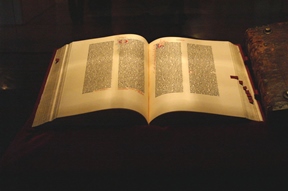The Letter to the Hebrews

God, who at sundry times and in divers manners spake in time past unto the fathers by the prophets, Hath in these last days spoken unto us by his Son, whom he hath appointed heir of all things, by whom also he made the worlds;
– Hebrews 1:1-2
This letter has several unique features among the New Testament epistles. There is no introductory greeting in the text. We don’t know exactly when it is written or from where it was written. We don’t know who wrote it. I know this is a contentious issue, but we will get to the authorship question in a few moments. We don’t know exactly whom it was written to and where they were located. There are some clues to those questions in the text but they only provide general answers or hints.
Further, this letter is more like a series of sermons than a letter until you get to the very end. The author does call it a “word of exhortation” (Hebrews 13:22). This book also contains the only reference to Timothy’s imprisonment we have in the New Testament (Hebrews 13:23). This letter has the only reference to Melchisedec in the New Testament. In fact, it is one of only three references in the entire Bible. The other two references are in Genesis and the Psalms.
This book also has some notable features. It is not about preaching in the sense that it is a homiletic textbook, but it is a great example of biblical preaching. The author quotes and refers to Old Testament passages and expounds them throughout the letter. It is noteworthy that the author quotes from the Old Testament and gives the quotes as God, Jesus, or the Spirit speaking. There is a scarce reference to David in reference to a Psalm but mostly the book quotes the Old Testament as God speaking. Read more






